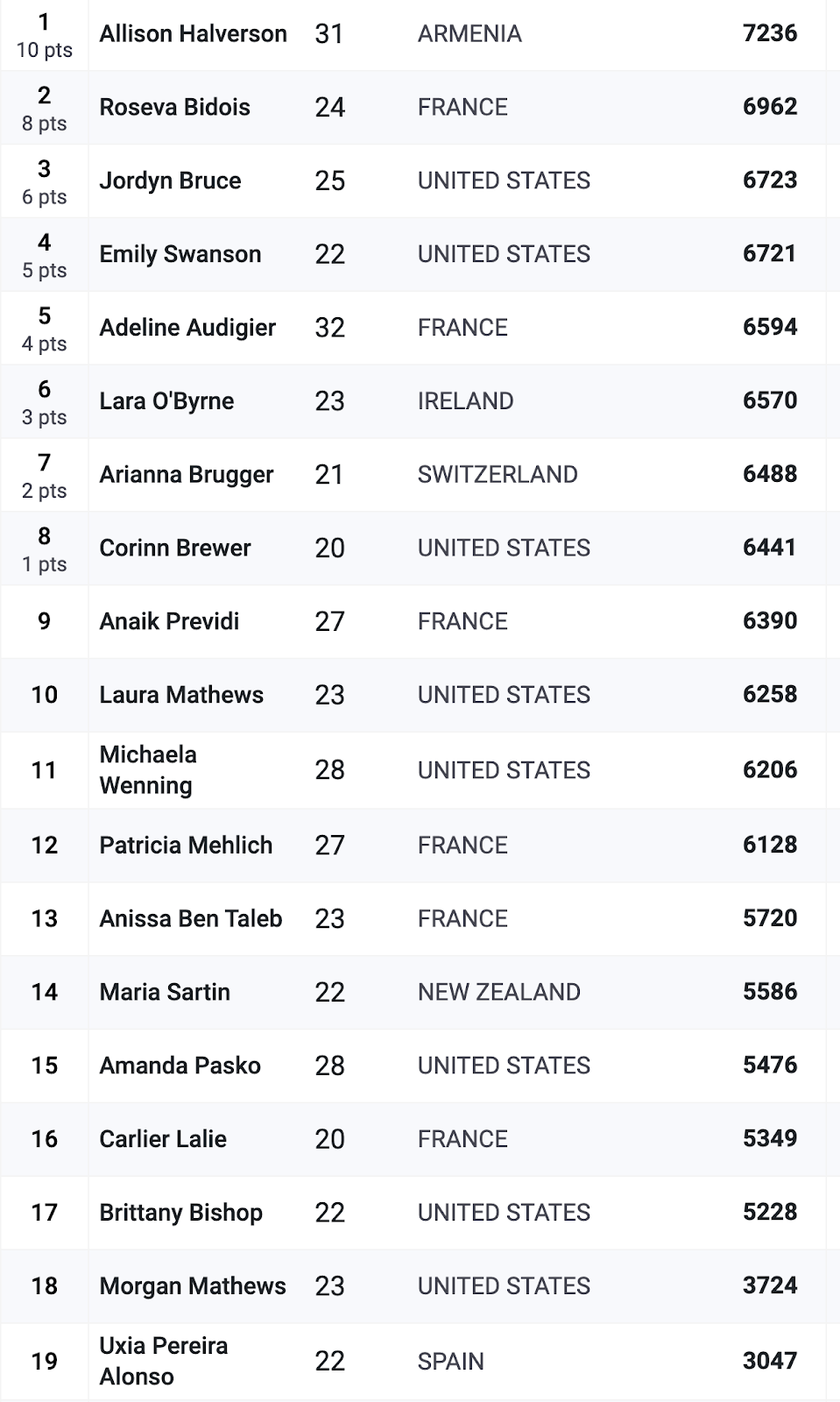On the same week-end of the men's olympic decathlon, the first women's World Decathlon Championships were held, in Geneva (Ohio). The choice of the dates was deliberate. It was meant to remind the world that women are still suffering from the age-old prejudice that keeps considering them the "weak sex". All the more so in sports, where the official propaganda is insisting that men-women parity has been achieved.
I cannot find a rational explanation for the fact that the decathlon event for women, officially introduced a quarter century ago, has yet to enter the official competition program. One possible reason, and one I hate to consider, is that women combined event specialists and their entourage are lobbying for the exclusion of decathlon, in order to maintain the status quo. It's true that the profile of a female decathlete would be totally different from that of the current heptathletes. It's also true that training for a decathlon would necessitate a much greater effort than the one necessary for the heptathlon, where specialists of one event can hope to shine with minimal preparation. But these are not valid reasons for perpetuating the injustice towards women, who demand that they be treated on an equal footing as men.
And since World Athletics is turning a deaf ear to their demands, they did what was done a century ago by the pioneer of women sports, the great Alice Milliat: they created their own competition. I have written on several occasions about women's decathlon. For me, a hard-core combined events fan, it is unthinkable that the event is not officially open to women. My friends, Frédéric and Pierre Gousset, of Décapassion, have also been campaigning for women's decathlon. If you wish to read the most thorough analysis of the question I suggest that you go over to Gabby Pieraccini's site and her article on the occasion of the World Championships. You will be greeted by the photo of the french national women's decathlon team.
I was really happy when I saw that the french federation, after having organised the first national championship of the event, was having an official presence in the World Championships.
There were in fact two competitions, an "élite" one and one dubbed "developmental". The latter was meant for competitors of a lesser level, ones who were discovering the decathlon. Seven countries were represented in the élite competition and five more in the developmental, for a total of 29 athletes.
The final scores are given below, for the élite competition
and for the developmental one.
Allison Halverson (an american athlete of armenian extraction, competing for Armenia since 2020) won the élite event with 7236 points. Roseva Bidois, of the french team, was second with 6962 points, the third place (by a scant 2 points over the 4th) going to Jordyn Bruce (who was second in this winter's indoor heptathlon) with 6723 points.
If you are interested in the details I suggest that you peruse the ones of the élite competition here, and those of the developmental, here. (And don't let yourself be led astray by the order in which the results are presented: the field events were held in the "natural" order and not the monstrous one cooked up by people trying to kill this women's event).
One funny remark is that, while most women decathletes have a decent pole vault, almost all of them are have a weakness in the throws. But this is something that will be easily remedied once we have the first real specialists of the event.
If you are wondering about World Athletics stance in all this, Pieraccini is presenting a detailed analysis. The Geneva competition is in fact listed in the World Athletics calendar as Women's Decathlon Championships but the word "World" has disappeared. Still, it is my feeling that the resistance by misogynists (accompanied by opportunists, some of them female) to a women's decathlon is futile. And (shamelessly filching the conclusion of Pieraccini's article) I, too, believe that "the doors currently slammed shut on girls are beginning to crack open".




No comments:
Post a Comment